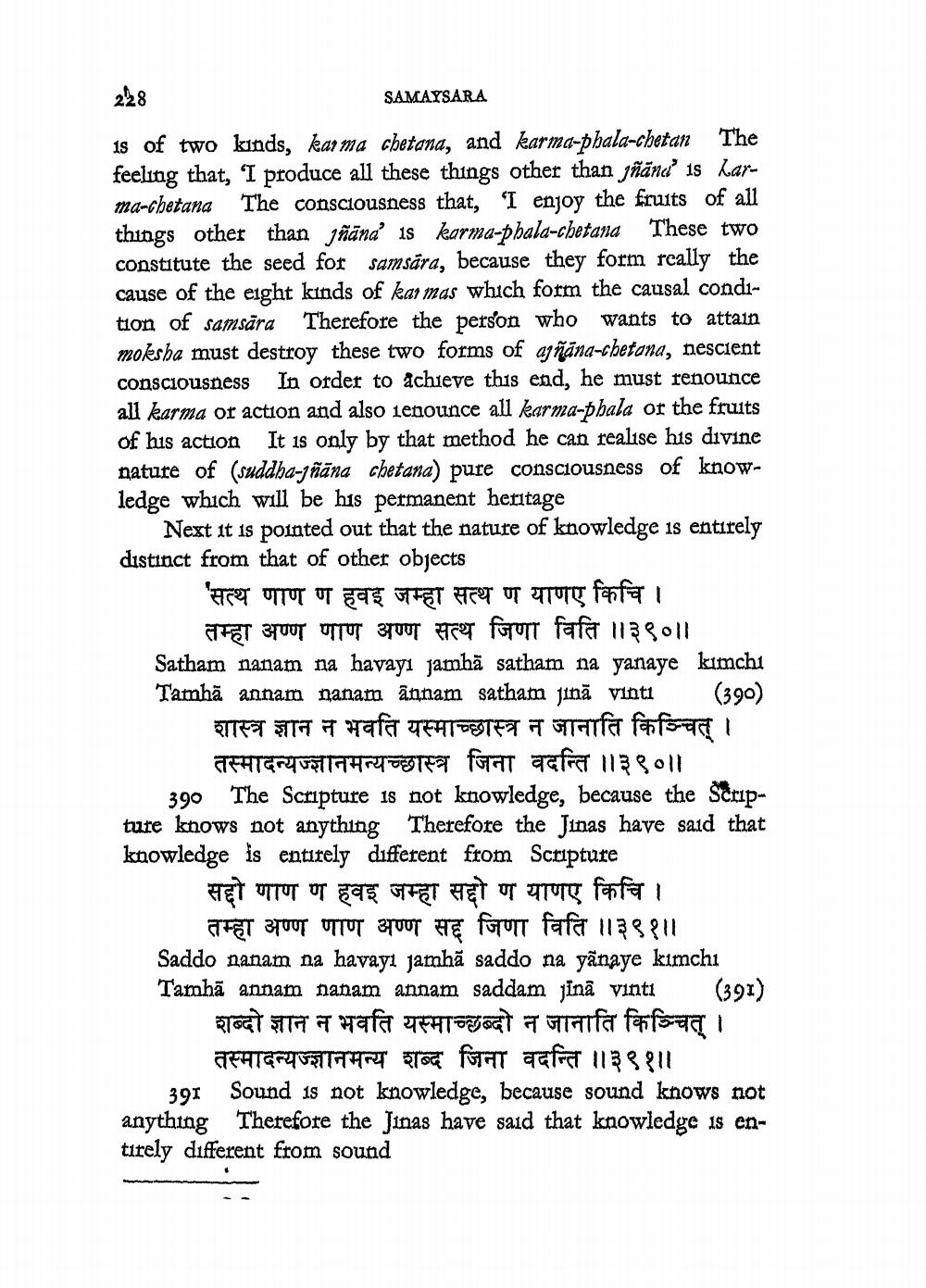________________
228
SAMAYSARA
18 of two kinds, karma chetana, and karma-phala-chetan The feeling that, I produce all these things other than jñānd' is larma-chetana The consciousness that, 'I enjoy the fruits of all things other than jñānd is karma-phala-chetana These two constitute the seed for samsāra, because they form really the cause of the eight kinds of kar mas which form the causal condition of samsāra Therefore the person who wants to attain moksha must destroy these two forms of ajñāna-chetana, nescient consciousness In order to achieve this end, he must renounce all karma or action and also tenounce all karma-phala or the fruits of his action It is only by that method he can realise his divine nature of (suddha-jñāna chetana) pure consciousness of knowledge which will be his permanent heritage
Next it is pointed out that the nature of knowledge is entirely distinct from that of other objects
'सत्थ णाण ण हवइ जम्हा सत्थ ण याणए किचि ।
तम्हा अण्ण णाण अण्ण सत्थ जिणा विति ॥३९०॥ Satham nanam na havayı jamhä satham na yanaye kimchi Tamhã annam nanam annam satham jinā vinti (390)
शास्त्र ज्ञान न भवति यस्माच्छास्त्र न जानाति किञ्चित् ।
तस्मादन्यज्ज्ञानमन्यच्छास्त्र जिना वदन्ति ॥३९०॥ 390 The Scripture is not knowledge, because the Stripture knows not anything Therefore the Jinas have said that knowledge is entirely different from Scripture
सद्दो णाण ण हवइ जम्हा सद्दो ण याणए किचि ।
तम्हा अण्ण णाण अण्ण सद्द जिणा विति ॥३९१।। Saddo nanam na havayi jamhā saddo na yānaye kimchi Tamhã annam nanam annam saddam jina vintí (391)
शब्दो ज्ञान न भवति यस्माच्छब्दो न जानाति किञ्चित् ।
तस्मादन्यज्ज्ञानमन्य' शब्द जिना वदन्ति ॥३९१॥ 391 Sound is not knowledge, because sound knows not anything Therefore the Jinas have said that knowledge is entirely different from sound




